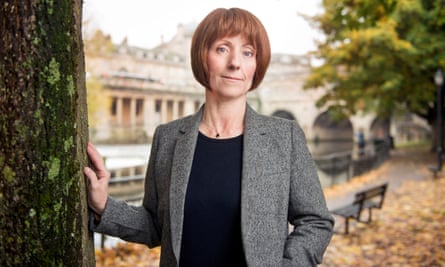Leading female scientists are calling for urgent reform of the distribution of research funding after data revealed that almost 90% of grants awarded in the field of engineering and physical sciences over the past decade have gone to projects led by men.
A freedom of information request (FoI) seen exclusively by the Guardian showed that in 2016-17, fewer than 7% of all research grants went to teams led by women – the lowest proportion for 10 years.
Even when women do successfully apply for funding, they are awarded less money than their male colleagues. In the past five years, more funding has consistently been granted to men and last year the average size of grant to women was less than 40% of what their male counterparts received.
The findings are based on analysis of data provided after an FoI request to the Engineering and Physical Sciences Research Council (EPSRC), the UK’s main agency that awards government funding for research in engineering and the physical sciences.
Dr Michaela Kendall, an environmental scientist who made the FoI request after applying and failing to secure a succession of research awards, called for the immediate introduction of gender targets in science funding to improve women’s success rate.
“Women have a huge capability, sense of problem solving and reasoning that they can contribute to science but both my own experience and general statistics suggest this capability is regularly overlooked and we don’t receive equal opportunity to participate,” she said.
The data also showed that from 2007-08 to 2015-16 women were underrepresented on peer review panels that determine who gets a grant and how much, taking fewer than one in five of the seats. As recently as 2013-14 women were outnumbered nine to one in panel meetings and though the figures have improved, today women still make up fewer than a third of review panel members.
Women comprise 17% of the engineering and physical sciences academic community, and those working in the field say their underrepresentation in successful research funding bids is just one symptom of pervasive gender inequality.
Kendall, a visiting professor at Birmingham City University who has spent much of her career overseas where she has held faculty positions in Asia, Europe and the US, says she has never been funded as a principal investigator by the UK government, but has successfully raised substantial sums from other sources, both private and overseas.
In 2017 she applied for seven government science grants from the EPSRC, Innovate UK and Local Enterprise Partnership. All seven proposals were rejected though highly scored. Her father, Prof Kevin Kendall, made one proposal based on the same business case and that proposal was accepted.
According to EPSRC figures, in 2016-17 the total grant value awarded to projects with male principal investigators was a little over £944m, compared with the £69m awarded to female principal investigators.
The EPSRC acknowledged that the value of grants awarded to women was lower than for men, but said it was “variable year on year with no clear trend”. It also suggested the 2016-17 figures were skewed because of a number of very large grants with male principal investigators.
“The low number of women leading large investments is an issue we recognise and we are continuing to explore the reasons behind this alongside the other work that we are doing on equality, diversity and inclusion,” a spokesperson said.
The council pointed to progress with the improved representation of women on peer review panels and a £5m initiative, Inclusion Matters, which aims to tackle and accelerate culture change. “We continue to work closely with other partners, including the learned societies, to understand the issues and how we might address them across disciplines.”

Prof Carole Mundell, head of physics at the University of Bath, said there were a range of underlying issues behind the gender gap in funding, including a lack of senior female academics in EPSRC fields and issues around the support women get when applying to grant rounds.
“The knock-on effect of not winning funding can also lead to an increased teaching load on women in male-dominated departments where men are winning grants and buying themselves out of teaching and/or admin duties, thereby further aggravating the problem.”
She said there remained a “pernicious gender bias” against female physical scientists and engineers. “Apart from the well known problem of sexual harassment, I am still hearing examples of critical comments being made on women’s appearances, voices, even font colour choices when giving a scientific presentation. The funding statistics are then one manifestation of a deeper problem in these fields.”
Dr Emma Chapman, a Royal Astronomical Society fellow at Imperial College London, agreed. “Women are discriminated against at every stage of their career. Women are more likely to have their emails ignored when requesting information about potential student positions, they require several more top-tier journal articles to be deemed suitable to fill a permanent position and are more likely to leave their career due to harassment,” she said.
“It is unsurprising that the effects of this inequality may continue right up to panel positions and successful research funding bids for any research council. We are all responsible for listening, understanding and reforming and we are far past the point of pretending that, if women just put themselves forward more, the inequality will heal itself.”
Kendall, who is the chief executive of Adelan, a clean tech company she co-founded with her father to develop fuel cells using alternative fuels to traditional hydrogen, would like to see a target of 50/50 by 2020 in research funding. “I want everyone to understand that small incremental change is not good enough. A radical approach is needed to fundamentally change.
“Women currently represent only 14% of the Stem [science, technology, engineering and mathematics] workforce and when women struggle in their careers, through lack of support, the absence of peers and systemic bias against funding opportunities, it can deter women from entering or staying within the field.
“Celebrating, encouraging and supporting women’s contributions to science and other Stem subjects is the only real way to encourage future generations to put themselves forward more readily.”









